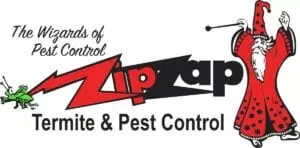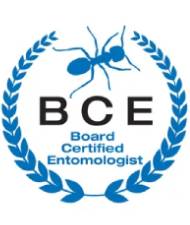Does Pest Control Get Rid of Mice? Your Ultimate Guide to a Mouse-Free Home

Mice. Those tiny, scurrying critters that dart across your kitchen floor or leave telltale droppings in your pantry. If you’ve ever spotted one, you know the panic that sets in. The big question on everyone’s mind: Does pest control get rid of mice? The answer is a resounding yes—but there’s more to it than you might think. In this ultimate guide, we’ll dive deep into how pest control tackles mice, the difference between general pest control and specialized rodent control, and why professional help is your best bet for a mouse-free home. Buckle up—this is the most comprehensive, engaging, and downright awesome article you’ll find on the web about banishing mice for good.
Mice: The Sneaky Home Invaders
Before we get into solutions, let’s understand the enemy. Mice are small rodents, typically house mice (Mus musculus), that thrive in human environments. They’re not just annoying—they’re destructive and dangerous. A single mouse can chew through walls, wires, and insulation, potentially causing fires or costly repairs. They contaminate food with droppings and urine, spreading diseases like salmonella or hantavirus. And here’s the kicker: one pair of mice can produce up to 60 offspring in a year. Yikes!
Mice sneak into homes through tiny gaps—think a hole the size of a dime. They’re drawn to food crumbs, warmth, and cozy nesting spots like your attic or basement. Spotting one mouse usually means more are hiding. So, how do you get rid of mice? That’s where pest control—and its specialized cousin, rodent control—comes in.
Pest Control vs. Rodent Control: What’s the Difference?
You might think pest control and rodent control are the same, but they’re not quite twins. Understanding the difference is key to answering, “Does pest control get rid of mice?”
- Pest Control: This is the broad umbrella. It covers treatments for insects like ants, cockroaches, spiders, and bed bugs. General pest control often includes spraying barriers, setting traps, or using baits to keep creepy crawlies at bay. While some pest control plans include mice, they may not focus on them specifically. Think of it as a general cleanup crew for all things buggy.
- Rodent Control: This is the specialized task force for mice, rats, and other furry invaders. Rodent control dives deeper into the unique habits of rodents. It involves targeted strategies like sealing entry points, using specific baits or traps, and monitoring for signs of activity. Because mice are crafty and reproduce fast, rodent control requires a tailored approach that general pest control might not cover in depth.
So, does pest control get rid of mice? Yes, but only if it includes rodent-specific methods. Many pest control companies offer bundled programs that combine general pest control with rodent control for comprehensive protection. These plans are your best bet for tackling mice head-on while keeping other pests out, too.
How Pest Control Banishes Mice
When you call a pest control company to deal with mice, here’s what you can expect from a top-notch service. This isn’t just about setting a few traps—it’s a strategic battle plan to reclaim your home.
- Inspection: The Detective Work
Pros start by hunting for clues. They’ll check for droppings, gnaw marks, greasy smudges (mice leave oily trails), or nests in hidden spots like behind appliances or in crawlspaces. They’ll also look for entry points—cracks, gaps around pipes, or vents. This step is crucial because missing even one entry point can let mice keep sneaking in. - Sealing Entry Points: Locking the Doors
Mice are like tiny acrobats, squeezing through gaps as small as a quarter-inch. Rodent control experts seal these entry points with materials like steel wool, caulk, or metal flashing. This step is a game-changer—it stops new mice from getting in, making treatments more effective. - Traps and Baits: The Takedown
Professionals use a mix of tools tailored to your home. Snap traps are quick and effective for small infestations. Glue boards catch mice in high-traffic areas. Baits, like rodenticide stations, are placed strategically but safely, keeping pets and kids out of harm’s way. Unlike DIY traps, pros know exactly where to place them for maximum impact. - Monitoring and Follow-Up: Staying Vigilant
Mice are persistent, so good pest control doesn’t stop at one visit. Professionals set up monitoring stations to track activity and schedule follow-ups to ensure the problem is gone. Bundled programs often include regular check-ins, making sure your home stays mouse-free year-round. - Sanitation Advice: Cutting Off Their Supply Line
Mice love crumbs and clutter. Pest control experts will point out problem areas—like unsealed food or piles of cardboard—and give you tips to make your home less inviting. Simple changes, like storing food in airtight containers or taking out the trash regularly, can make a big difference.
Why Professional Pest Control Is the Gold Standard
You might be tempted to grab a trap or two from the hardware store, but DIY mouse control often falls short. Here’s why professional pest control—especially with a rodent control focus—is the way to go:
- Expertise: Pros know mice inside and out. They understand their behavior, like how they follow walls or prefer to nest near food. This knowledge means faster, more effective results.
- Stronger Tools: Professional-grade baits and traps are more powerful than what’s available to consumers. Plus, technicians use them safely, following strict regulations to protect your family and pets.
- Long-Term Protection: DIY fixes might catch a mouse or two, but they don’t address the root problem. Professionals tackle entry points, nesting areas, and future risks, ensuring mice don’t come back.
- Time and Peace of Mind: Chasing mice yourself is stressful and time-consuming. Professionals handle everything, from inspection to cleanup, so you can relax knowing your home is protected.
- Cost-Effective: A bundled pest control program that includes rodent control is often cheaper than repeated DIY attempts or repairing damage from an unchecked infestation. Think of it as an investment in your home’s safety.
The Risks of Letting Mice Linger
Ignoring a mouse problem is like letting a small leak turn into a flooded basement. Here’s why acting fast with professional pest control matters:
- Health Hazards: Mice spread diseases through their droppings, urine, and bites. Hantavirus, spread by inhaling dust from contaminated areas, can cause severe respiratory issues. Salmonella can hitch a ride on their feet, landing on your countertops.
- Property Damage: Mice chew constantly to keep their teeth short. They’ll gnaw on wood, drywall, insulation, and electrical wires, which can spark fires. The National Fire Protection Association reports that rodents cause thousands of house fires annually.
- Rapid Reproduction: A single female mouse can have 5–10 litters per year, with 6–8 babies each. Do the math—that’s a potential army of mice in just months. Professional pest control stops this cycle before it spirals.
- Emotional Toll: Knowing mice are in your home can make you feel uneasy or embarrassed. Quick, effective rodent control restores your peace of mind and lets you enjoy your space again.
DIY Mouse Control: What Works (and What Doesn’t)
While professional pest control is the gold standard, you might want to try some DIY steps alongside it. Here’s the lowdown:
- What Works:
- Seal Gaps: Check for holes around doors, windows, and pipes. Use copper wool or Roban rodent sealer to block them.
- Clean Up: Store food in sealed containers, vacuum crumbs, and declutter to remove hiding spots.
- Set Traps: Snap traps or glue boards can catch a few mice, but place them along walls or near droppings for best results.
- What Doesn’t:
- Ultrasonic Devices: Studies, such as those from the University of Arizona, show that these gadgets have little to no effect on mice.
- Peppermint Oil or Mothballs: These might smell nice (or not), but they don’t keep mice away for long.
- Catching One and Done: Trapping a single mouse won’t solve the problem—others are likely hiding.
DIY can help, but it’s no match for a professional plan. Combining DIY prevention with expert rodent control is the ultimate one-two punch.
Why Bundled Programs Are Your Best Bet
For the ultimate mouse defense, choose a pest control company that offers bundled programs. These plans combine general pest control (for insects) with rodent control, giving you all-around protection. Here’s why they rock:
- Comprehensive Coverage: You get protection from mice, ants, spiders, and more in one package.
- Regular Check-Ins: Quarterly or monthly visits catch problems early, before they grow.
- Cost Savings: Bundled plans are often cheaper than separate treatments, with perks like free re-treatments if mice sneak back.
- Peace of Mind: Knowing your home is monitored by pros lets you focus on life, not pests.
The Bottom Line: Yes, Pest Control Gets Rid of Mice!
So, does pest control get rid of mice? Absolutely—especially when it includes specialized rodent control. Professional pest management goes beyond quick fixes, offering inspections, targeted treatments, and prevention to keep your home mouse-free. Mice aren’t just a nuisance—they’re a threat to your health, property, and sanity. Don’t waste time with half-measures. Invest in a bundled pest control program with rodent control expertise, and say goodbye to mice for good.
Ready to kick mice out of your home? Contact a trusted pest control company today and ask about their rodent control options. Your mouse-free future starts now!

Jeffery Preece, BCE, PHE
Jeffery Preece is the owner and technical director of ZipZap Termite & Pest Control



